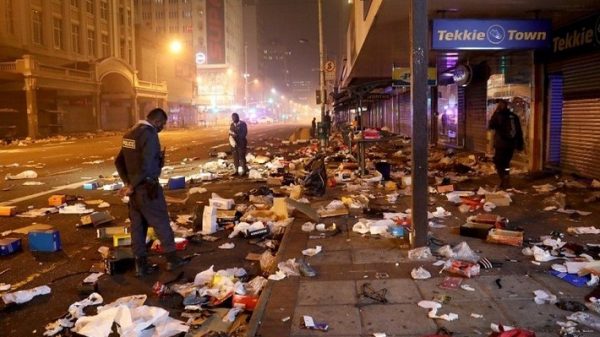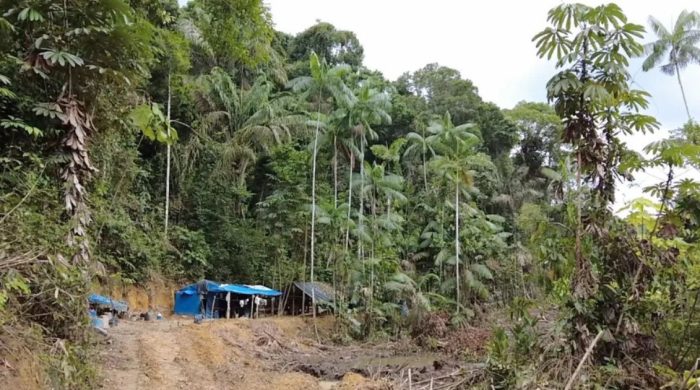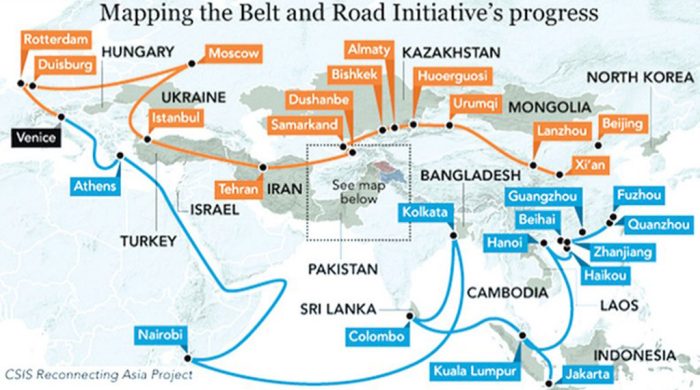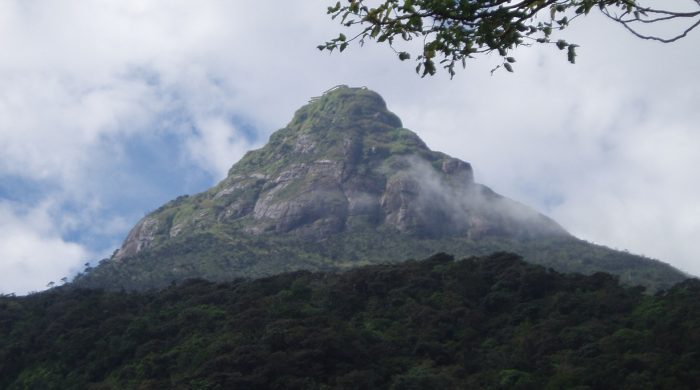South Africa looting: I’m struggling to find food

- Update Time : Thursday, July 15, 2021
- 185 Time View

Leading a comfortable life in South Africa’s coastal city of Durban, John – not his real name – risks running out of food for the first time ever following the mass looting and burning of supermarkets and shops after protests over the imprisonment of former President Jacob Zuma spiralled out of control.
“Middle-class people like me now face shortages. On Tuesday, I could not get bread and milk until I became aware, through our neighbourhood WhatsApp group, of a community organisation giving it out.
“I went to their hall. We had to queue, and each person was given two loaves of bread and one litre of milk. I don’t know where they got the stocks from but they gave out 8,000 loaves. Today [Wednesday], they don’t have any,” he added.
Durban, the main city in KwaZulu-Natal, is the political heartland of Zuma.
He began a 15-month prison sentence last Thursday for contempt of court after he disobeyed an order from judges to appear before an official inquiry investigating corruption allegations against him from his nine-year tenure as president.
Zuma’s supporters reacted furiously to his imprisonment, blockading major roads and calling for a shutdown to demand his release.
The protests have since descended into riots on a scale rarely seen in South Africa, with businesses in every sector looted, burnt and petrol-bombed in cities and towns across KwaZulu-Natal.
Fears of fuel shortages
Similar unrest has swept through the economic hub of Gauteng, but KwaZulu-Natal remains the main flashpoint, with the riots reaching, or coming close to, some affluent neighbourhoods, terrifying shop owners and residents like John.
He said that only two or three shops in his suburb remained open. And this was for only a few hours a day.
“We are stocking up on dry food, and things like potatoes and onions. The shop owner said farms are inaccessible, and there will be no vegetables once his stocks run out,” John added.
His other worry is medication for his chronically ill wife.
“Some of the big pharmaceutical chains have been looted or are closed. I went to a small pharmacy that is still open. I queued for three hours to get medication. Baby food and nappies are in huge demand,” John said.
There are also fears of fuel shortages – something most South Africans have never experienced in their lives.
“At my petrol station, only one pump is open. There are long queues. I have half a tank of petrol left,” John added.
He does not need much fuel at the moment though, as it is not safe to travel outside his suburb.
Furthermore, some adjacent suburbs have been blocked off by residents who have formed neighbourhood watch groups, or what local media call “defence squads”, to prevent invasions.
“They don’t allow any non-resident in, not even during the day, so even if I want to, I can’t take a drive there to look for groceries,” John said.
In his suburb, the neighbourhood patrol operates only at night. He has joined it, along with about 25 other men.
“Some have guns, but most of us just carry sticks, pipes and torches. I never thought I’ll ever do this, but we have no choice. There are no police; no soldiers,” he said.
“We block all intersections with our cars. Some of us will stand there; others will do foot patrols.
“If we get suspicious of someone we’ll tell them to leave, and we’ve had a few instances of unregistered cars. We suspect they had come to survey our area to plan an attack,” John said.
Raising money to help victims
In some other Durban neighbourhoods there have been violent confrontations, with large numbers of looters managing to raid shops and some homes before armed residents opened fire, forcing them to retreat. Some were shot.
Local leaders from both communities stepped in to negotiate a “no looting; no shooting” agreement, hoping that this will prevent a further escalation of conflict and help restore stability in a country shaken by the unrest.
On Monday, President Cyril Ramaphosa ordered the deployment of soldiers to help police contain the riots, but for many it is too late.
Business owners – some with no insurance – have been left with no income after their shops were ransacked or went up in flames.
Communities in other parts of South Africa have now come together, trying to raise funds to help them rebuild their lives.
But it will be no easy task in a country where the economy – already reeling from the coronavirus pandemic – is in deep crisis.
It has led to fears of further job losses in a nation where more than 32% of the workforce is unemployed – a key factor in the scale of the looting the country has witnessed over the past few days.





















